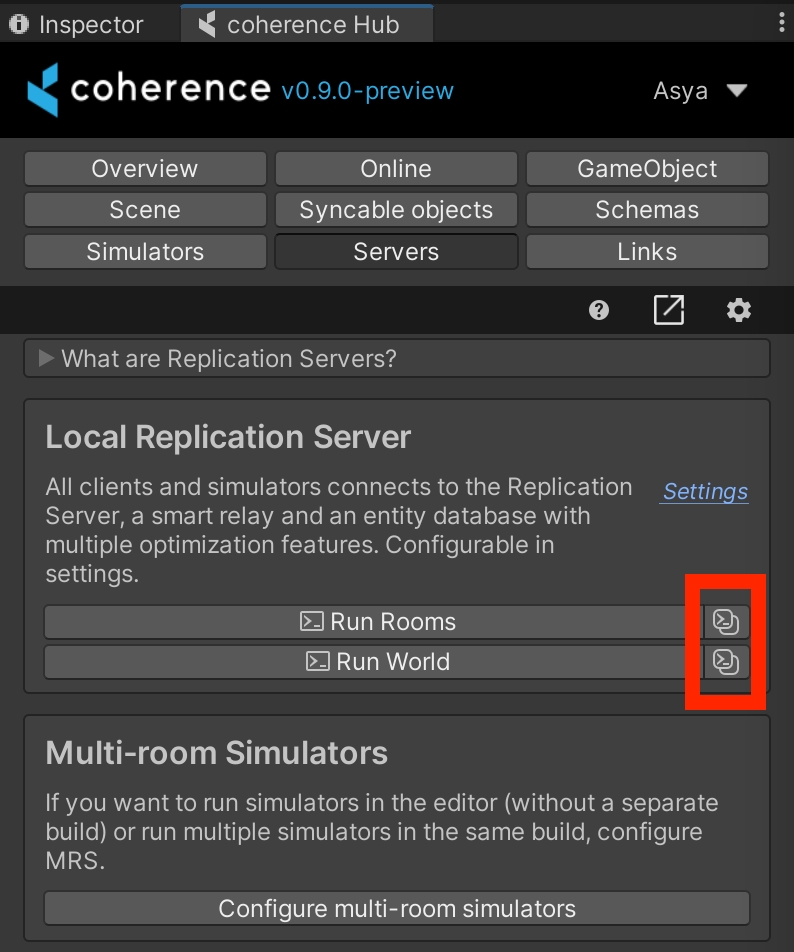Command-line interface tools
Command-line interface tools explained
Found in <package-root>/.Runtime/<platform>/.
Replication Server
replication-server --help serve
--port=32001 The port to listen to.
--stats-port=32000 The port to listen for stats scrapers. Also enables pprof.
--use-p-prof If StatsPort is 0 then setup pprof on port 6060.
--dump Write network packets to capture files (.packets).
--dump-reverse Write network packets reversing in and out packets
--frequency=20 [Obsolete] use SendFrequency instead.
--send-frequency=20 The server send frequency.
--recv-frequency=60 The server packet receive frequency packets/s. Packets received faster than this will be dropped and the connection throttled.
--schema=STRING The schema file (.schema).
--disconnect-timeout=5000 Disconnect timeout (in milliseconds).
--debug-streams Use debug streams.
--max-entities=65536 Maximum number of entities allowed.
--max-clients=200 Expected maximum number of clients.
--min-query-distance=0.1 Minimum distance for query change.
--web-support [Deprecated] Does this support web connections.
--public-ip=STRING Public IP of the replication server, used by webrtc.
--web-port=32003 Port for webrtc, only used if --web-support is true
--signalling-port=32002 Port for signalling, only used if --web-support is true
--out-stats-freq=1 Frequency, in seconds, of updates to prometheus stats
--log-stats-freq=0 Frequency, in seconds, of output of stats to INFO logs. 0 - no output
--env="prod" Environment in which the server is executed
--secret="local-development" Secret used for API request and client authentication. The default value is used during local development only.
--project-id="local" ID of the project as assigned by the portal.To start the Server, you need to give it the location of the schema.
You can also define other parameters like min-query-distance (the minimum distance the LiveQuery needs to move for the Replicator to recognize a change), send and receive frequency, ip and port number.
Minimal parameters set is presented in the example below:
replication-server serve --port 32001 --signalling-port 32002 --send-frequency 20 --recv-frequency 60 --web-support --env dev --schema "/Users/coherence/unity/Coherence.Toolkit/Toolkit.schema,/Users/coherence/MyProject/Library/coherence/Gathered.schema"
replication-server --help listen
Last updated
Was this helpful?


